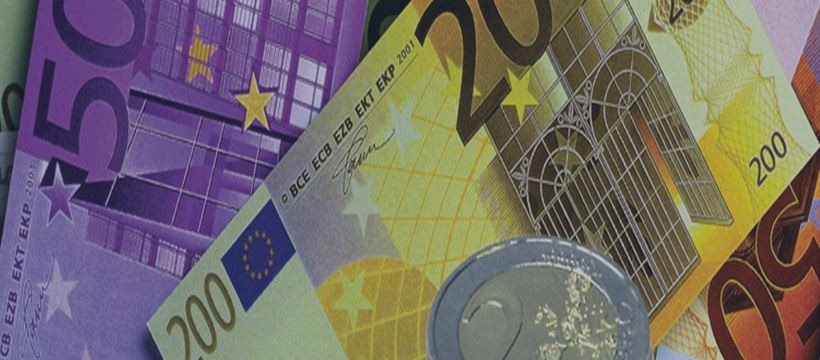The ECB and Chancellor Merkel face stiffer opposition than ever
The European Court of Justice announced Sept. 22 that hearings in the case against the European Central Bank’s (ECB) bond-buying program known as Outright Monetary Transactions (OMT) will begin Oct. 14. Though the process is likely to be lengthy, with a judgment not due until mid-2015, the ruling will have serious implications for Germany’s relationship with the rest of the eurozone.
The timing could hardly be worse, coming as an anti-euro party has recently been making strides in the German political scene, steadily undermining the government’s room for maneuver.
The roots of the case go back to late 2011, when Italian and Spanish sovereign bond yields were following their Greek counterparts to sky-high levels as the markets showed that they had lost confidence in the eurozone’s most troubled economies’ ability to turn themselves around. By summer 2012 the situation in Europe was desperate. Bailouts had been undertaken in Greece, Ireland and Portugal, while Italy was getting dangerously close to needing one. But Italy’s economy, and particularly its gargantuan levels of government debt, meant that it would be too big to receive similar treatment. In any event, the previous bailouts were not calming financial markets.
As Spain and Italy’s bond yields lurched around the 7 percent mark, considered the point where default becomes inevitable, the new president of the European Central Bank, Mario Draghi, said the ECB was willing to do whatever it took to save the euro. In concert with the heads of the European governments, the ECB developed a mechanism that enables it to buy unlimited numbers of sovereign bonds to stabilize a member country, a weapon large enough to cow bond traders.
The Alternative for Germany party is putting Angela Merkel, a European integrationist, in a quandary that will become acute if it proves capable of representing Germans uncomfortable with the idea of the country financially supporting the rest of Europe.
Draghi never actually had to step in because the promise of intervention in bond markets convinced investors that eurozone countries would not be allowed to default. But Draghi’s solution was not to everyone’s taste. Notable opponents included Jens Weidmann, president of the German Bundesbank. Along with many Germans, Weidmann felt the ECB was overstepping its jurisdictional boundaries, since EU treaties bar the bank from financing member states. Worse, were OMT ever actually used, it essentially would be spending German money to bail out what many Germans considered profligate Southern Europeans.
In early 2013, a group of economics and constitutional law professors from German universities collected some 35,000 signatures and brought OMT before the German Constitutional Court. During a hearing in June 2013, Weidmann testified for the prosecution. In February 2014, the court delivered an unexpected verdict, ruling 6-2 that the central bank had in fact overstepped its boundaries, though it also referred the matter to the European Court of Justice. Recognizing the profound importance of this issue, the court acknowledged that a more restrictive interpretation of OMT by the European Court of Justice could make it legal.
The German judgment suggested that three alterations to OMT would satisfy the Constitutional Court that the mechanism was lawful. Two of the three changes, however, are problematic at best. One alteration would limit the ECB to senior debt, a change that would protect it against the default of the sovereign in question but also risk undermining the confidence of other investors who would not be similarly protected. The second alteration would make bond buying no longer “unlimited,” constraining the bank’s ability to intimidate bond traders by leaving it with a rifle instead of a bazooka.
A New German Political Party
The group of academics who organized the petition kept busy while the court deliberated. The Alternative for Germany, a party founded in February 2013 by one of their number, economics professor Bernd Lucke, and frequently known by its German acronym, AfD, has made significant gains in elections across Germany. Founded as an anti-euro party, the party came very close to winning a seat in the Bundestag, the lower house of the German parliament, in the September 2013 general elections, a remarkable feat for a party founded just six months before. It made even larger gains in 2014, winning 7.1 percent of the vote in European Parliament elections in May and between 9.7 and 12.2 percent in three regional elections in August and September.
Germany is currently ruled by a grand coalition, with German Chancellor Angela Merkel’s center-right Christian Democratic Union party (and its sister party, the Bavaria-based Christian Social Union) sharing power with the center-left Social Democratic Party. This has resulted in the Christian Democratic Union being dragged further to the center than it wanted to be, creating a space to its right that the Alternative for Germany nimbly entered.
Originally a single-issue party, the Alternative for Germany has begun espousing conservative values and anti-immigration policies, a tactic that worked particularly well in elections held in eastern Germany in the summer. Its rise puts Merkel, a European integrationist, in a quandary that will become particularly acute if the Alternative for Germany proves capable of representing Germans uncomfortable with the idea of the country financially supporting the rest of Europe.



